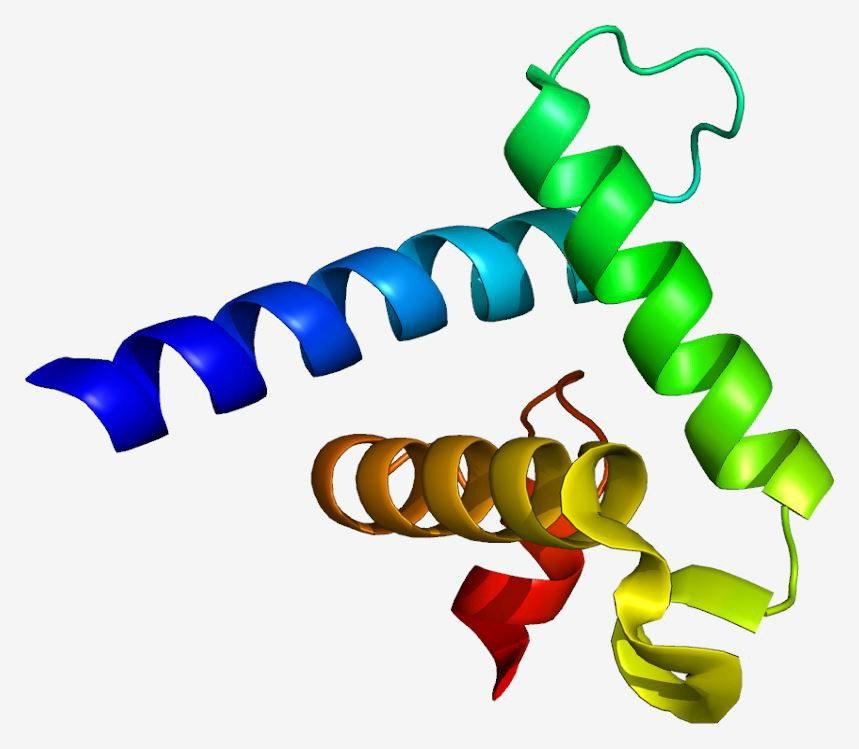EP300 and Associated Diseases
Creative Biolabs is founded by outstanding scientists with deep research experience and we provide the end-to-end service and custom solutions to your gene therapy-associated problems. Our talent teams have the capacity of addressing all your complex problems within your project.
Overview of EP300
In humans, E1A-associated protein p300 (EP300, where E1A means adenovirus early region 1A) is encoded by the EP300 gene which is located at position 13.2 of the long arm of the human chromosome 22. It functions as histone acetyltransferase and regulates gene transcription by chromatin remodeling. EP300 plays an important role in cell proliferation, division, and differentiation, and prevents the growth of tumor cells. EP300, called a transcriptional coactivator, promotes transcription activation by binding to transcription factors with different EP300 domains like the nuclear receptor interaction domain (RID).
 Fig.1 Structure of the EP300 protein. (Wikipedia)
Fig.1 Structure of the EP300 protein. (Wikipedia)
EP300 in Disease
EP300 protein is associated with cell growth, differentiation, autophagy, and several types of diseases, such as autophagy-associated disease and cancer.
- Age-associated disease
EP300 can act as an endogenous repressor of autophagy and increase age-related pathologies such as neurodegenerative diseases by its acetyltransferase activity. Knock-down of EP300 by a pharmacological inhibitor C646 can induce autophagy in both normal and enucleated cells, which means that EP300 represses autophagy by cytoplasmic effects. In cultured human cells, natural compounds such as spermidine can reduce the acetylation level by inhibiting EP300, induce autophagy, and interfere with the mTORC1 pathway. Further analysis of spermidine helps develop new specific EP300 inhibitors as investigational drugs for autophagy induction.
- Breast cancer
EP300 leads to a more malignant phenotype of breast cancer. The expression of EP300 is low in metaplastic breast cancer verified by Immunohistochemical staining. Breast cancer cells with EP300 knock-down or knock-out are more resistant to the drug paclitaxel whereas overexpression of EP300 increases the drug sensitivity of cells. EP300 knock-out cells express more cancer stem cell markers such as CD44, and CD24, and ALDH and form tumor sphere, which are decreased in EP300 overexpression cells. Gene expression profiling of EP300 targets identifies the genes associated with the epithelial-to-mesenchymal transition, which promotes the generation of stem cell-like cancer cells. Besides, the apoptosis marker BCL2 and stemness marker ABCG2 are upregulated in EP300 knock-out colon carcinoma cells.
The E1A-associated protein p300 (EP300) plays an important role in many biological processes. Creative Biolabs own professional teams to help our clients in the field of gene therapy. We provide detailed disease-specific gene therapy development solutions. Please feel free to contact us for more about your EP300 project.
Reference
- From Wikipedia: Emw, CC BY-SA 3.0, https://commons.wikimedia.org/wiki/File:Protein_CREBBP_PDB_1f81.png.
